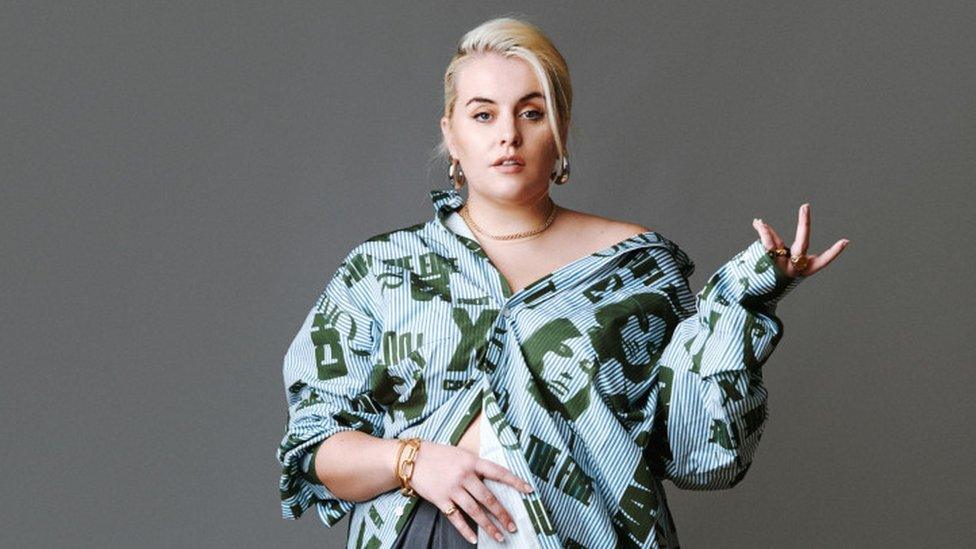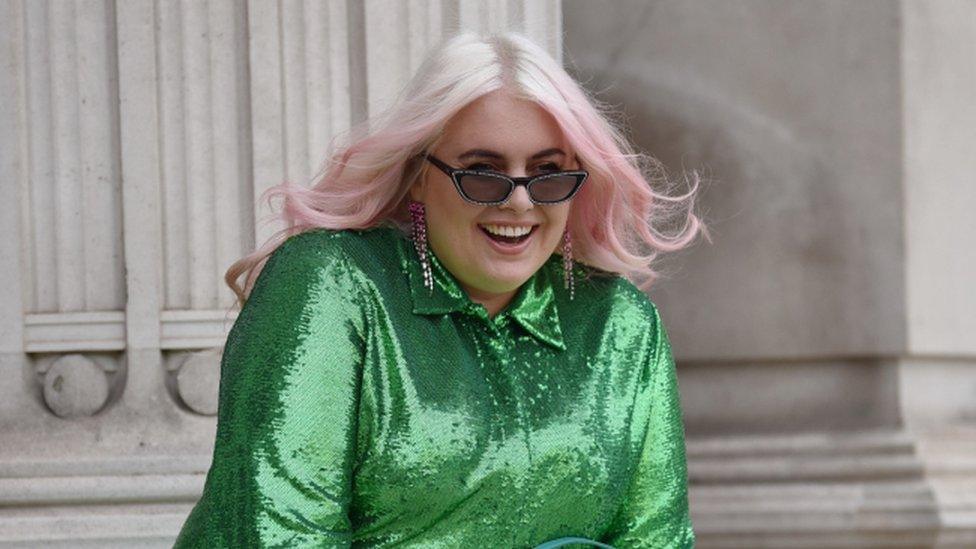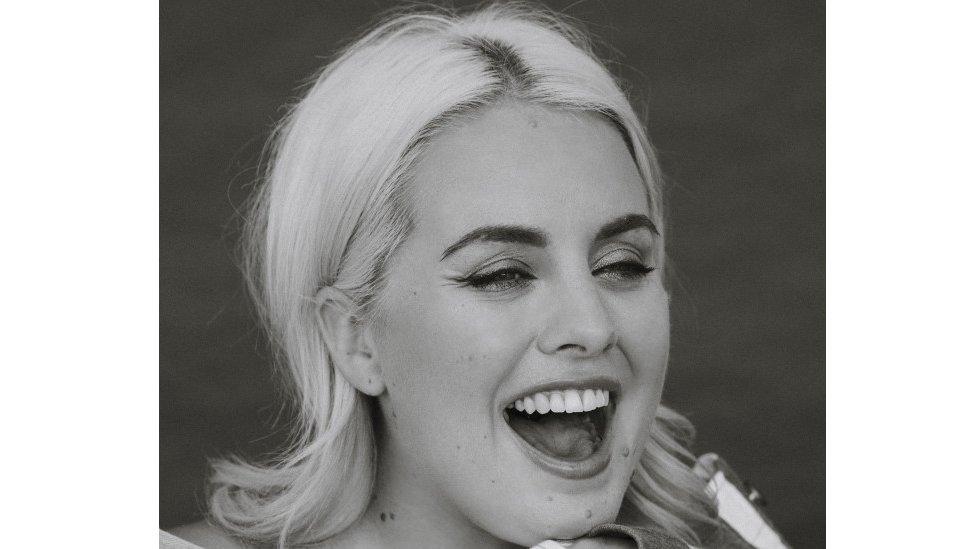Diet: Body image warning over 'new year, new you' posts
- Published

Plus-size model Felicity Hayward is worried about the impact of New Year's health posts on people struggling with the way they look
Get fit, change this, go on this diet.
At this time of year, we're surrounded by adverts and social media posts telling us how we can improve our health and appearance.
It can sometimes be difficult to know what to trust, as extreme diets and exercise routines can appear next to more well-informed advice.
And this can be especially hard for those who struggle with the way they look, according to body-positive influencer Felicity Hayward.
"It's all about preying on our insecurities to make profit," the plus-size model warns.
Instead, she urges us to "unfollow people who are promoting unrealistic body image, and follow people who inspire you".
'Pressure'
It's a message echoed by eating disorder charities.
"There's often an increased pressure to lose weight and set health goals during January," according to Beat, external.
"This can be very harmful for those with eating disorders," the charity tells BBC Newsbeat in a statement.
It warns that "adverts, social media posts and societal pressure to lose weight" can make illness worse and recovery more difficult.
'New year, new me'?
Felicity, 34, feels "we shouldn't be under this much pressure".
"At Christmas, we get all these targeted ads and we're told to eat all of this food, drink all of this stuff, indulge," she says.
"And then to move into January, when we're told to start eating a lot healthier and do all this stuff."
So why the mixed messages?
"It is just a money-making machine," Felicity says.
"There should be a healthy balance between all of this, and that's what people should be promoting - but if they weren't promoting this 'new year, new me' thing, money wouldn't be made."

Felicity, 34, is calling for a 'healthy balance' between promoting health and happiness
'Finding joy'
But Felicity has a positive message to "anyone who is struggling with their body image right now".
"No matter if you want to look like someone else - you need to aspire to be the best version of yourself," she says.
"[Wanting to look] like someone else is only going to cause you extreme pain.
"Being yourself is the best possible thing you can be."
Felicity urges us to "find those little moments of joy and the things that bring you happiness, and work on those things to make sure you are treating yourself well and not comparing yourself to others".
Follow and unfollow
And there are changes we can make online to help with this, she says.
"When you see things on the internet that make you feel uncomfortable about yourself, you need to be strong and remove those people."
Beat points the finger at our feeds, too.
"We urge social media and advertising companies to remove content that promotes extreme weight loss techniques," the charity says.
It also wants firms to be clearer in public about how their apps decide which content they show us, and to direct users to eating disorder support.

"Make sure you are treating yourself well and not comparing yourself to others" the model says
Last year, TikTok announced changes aimed at cracking down on content promoting "disordered eating", and Instagram has previously apologised for promoting diet content to users with eating disorders.
The UK government has dropped plans to force the biggest social media platforms to take down harmful content, including posts about eating disorders.
But whether it's online or in real life, the New Year message from Felicity is the same.
"Follow people around you who you love."
If you or someone you know has been affected by eating disorders, BBC Action Line has a list of organisations that can provide help and advice.


Follow Newsbeat on Twitter, external and YouTube, external.